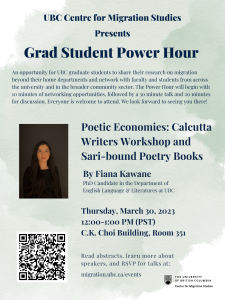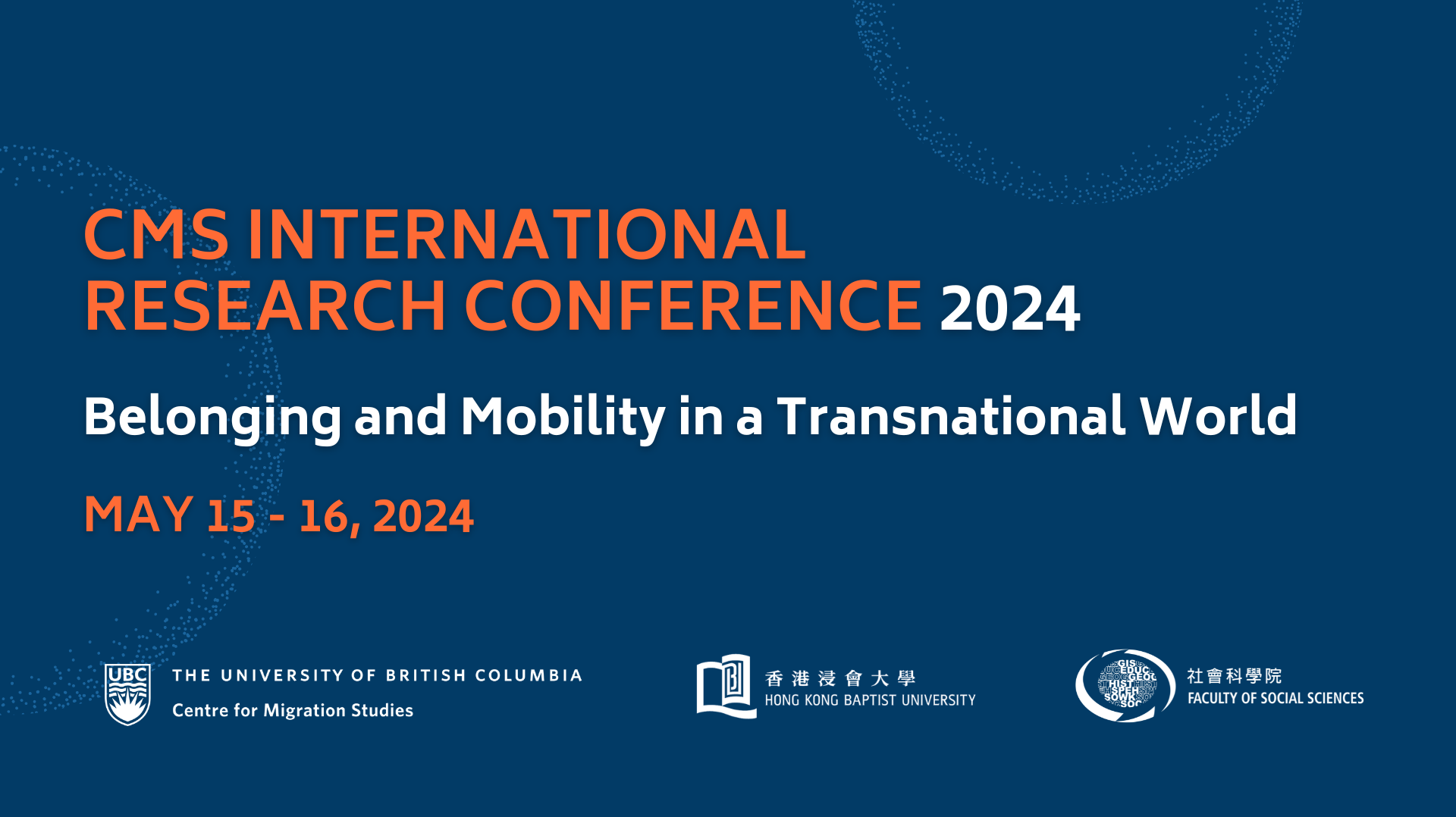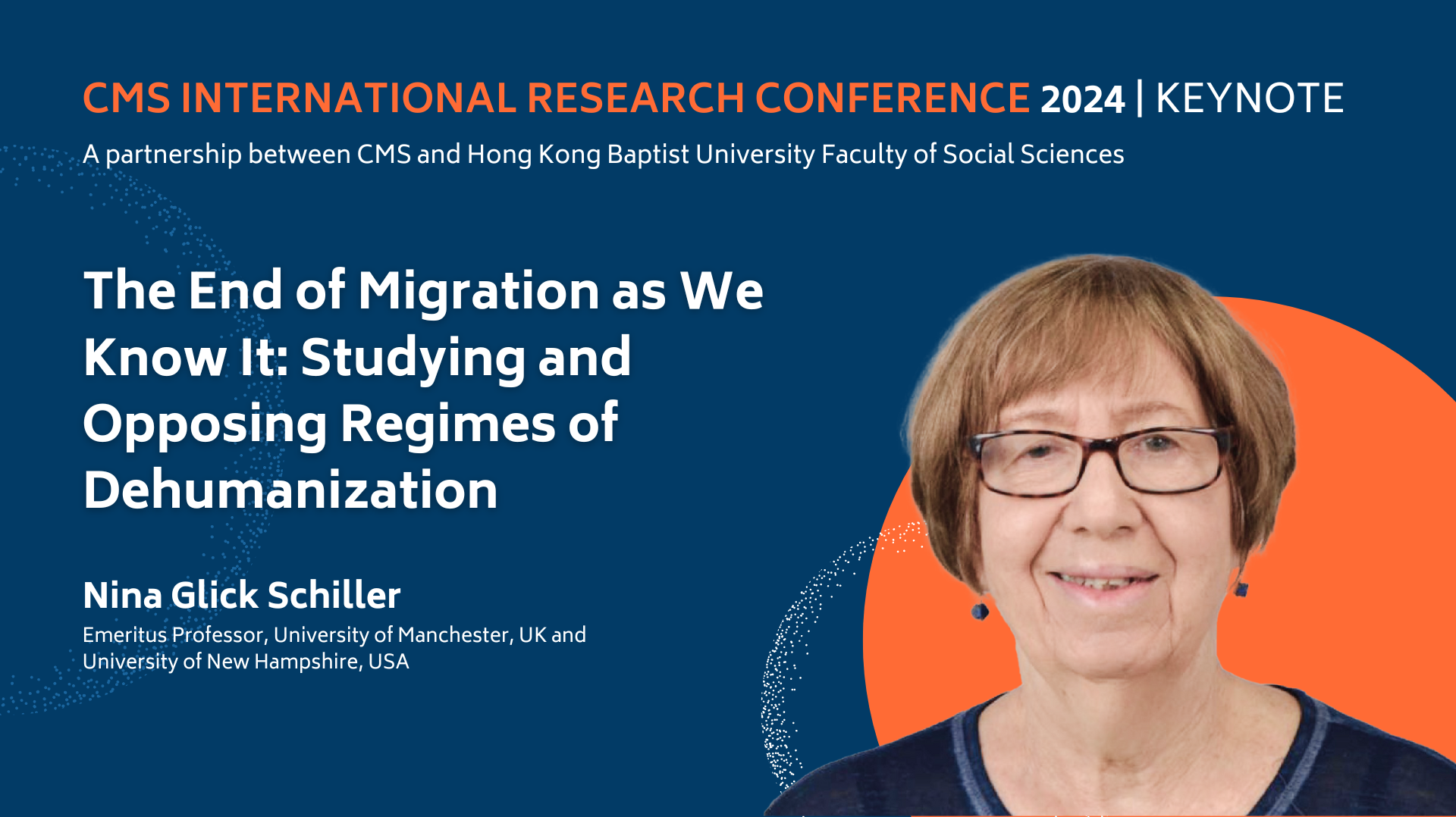Poetic Economies: Calcutta Writers Workshop and Sari-bound Poetry Books
By Fiana Kawane
PhD Candidate in the Department of English Language & Literatures at the University of British Columbia


Speaker Bio
Fiana Kawane (she/her) is a PhD Candidate at the Department of English Language and Literatures, UBC, and a Killam doctoral scholar. Her dissertation reads lyric poetry by South Asian diasporic writers publishing between the 1970s and 2000s to rethink concepts of ecology and narratives of mobility, politics of language, and poetics of imaginative geographies. Through her work, she offers critical readings of transnational poetry within the context of settler-colonialisms, new nationalisms, and late modernity. Her broader research interests focus on the conditions that produce and circulate global anglophone poetry and its readings. She is a 2022-’23 Fellow with the UBC Centre for Migration Studies.
Abstract
What is so extraordinary about something as seemingly everyday as a fragment of cotton sari fabric? In the late-1950s, unsettling the binaries of a collector’s item versus mass-produced commodity, the Calcutta Writers Workshop began publishing sari-bound poetry books for wider circulation of Anglophone poetry from newly independent India. Individually hand-bound in bright sari fabric, gold-embossed with motifs of trees and birds, and carrying titles in calligraphy, each dust jacket notes the name of the binder as one Tulamiah Mohiuddin. The small press’ choice of a slow, hand-operated letterpress for printing its pages also continues to date. Despite limited resources, the Calcutta Writers Workshop launched the first poetry collections of transnational poets Agha Shahid Ali and Meena Alexander before they became celebrated poets in the U.S. Yet, the press’ contribution in the cultivation of late-twentieth century lyric poetry as a modality of critique and literary experiment has been largely overlooked. The press’ eclectic aesthetic, both material and poetic, then calls for an attention towards the poetic economies of small presses and their role in constituting and disturbing conceptions of the global. Focusing on glitch as a generative analytic that unsettles the industrial transformation of the manual to the automatic, I will read Ali and Alexander’s sari-bound poetry books with the Calcutta Writers Workshop as a transnational literary tactic that disturbs diffusionist assumptions of innovation under the sign of modernity.
Please RSVP for this in-person event below.


